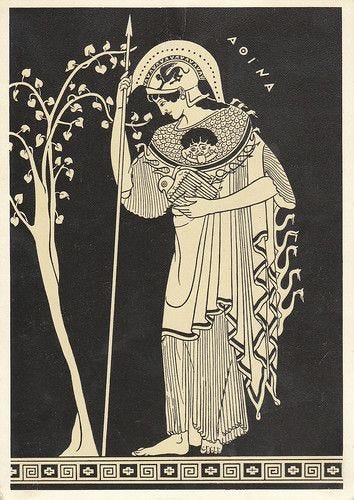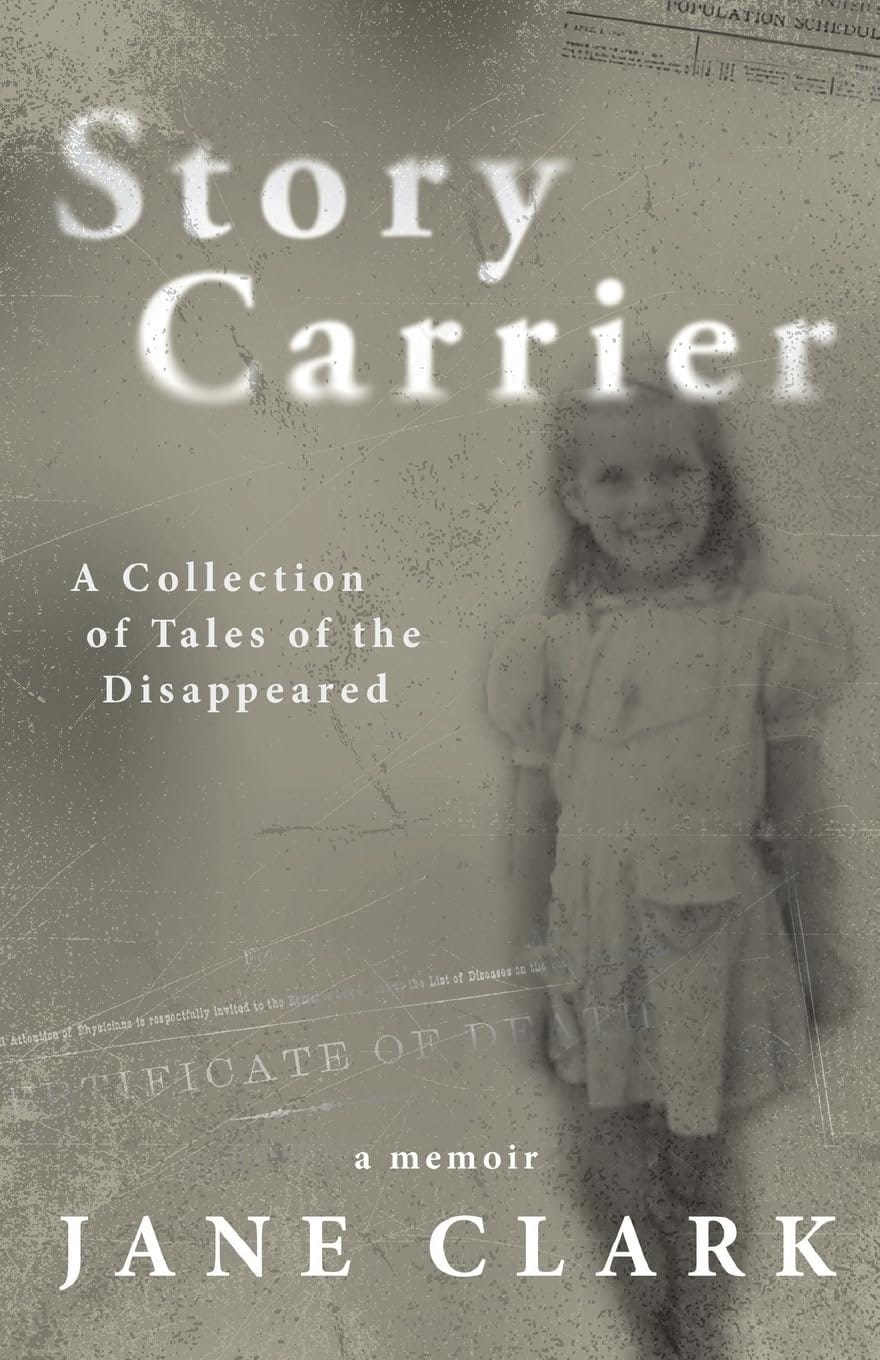“Silence is a woman’s glory.” Aristotle
Not this woman! I’ve spent my life writing about the ways women have been conditioned to be silent and working to help restore voice to those whose needs and desires have been dismissed or restrained by cultural and socio-political messages. This is pretty much every person who identifies as a woman. Aristotle’s quote elicits the beginning of a primal scream in my soul that wants to work itself out of my body. It makes me want to explode on the page, to vomit on the screen, tear through the horizon. I want to push against the currents of a world that threatens to swallow women’s voices in its pursuit of profit over the wellbeing of citizens. Against an empire that seeks glory by consuming human souls. I write because I want to speak into this condition, screaming, “This is war.”
In Homer’s Iliad, the Goddess Athena was regaled for her military prowess, her skill in close combat, victory, and glory. She shared the realm of warfare with her half-brother, Ares—the god of war. But it was her sense of justice, love of civilization and her wisdom that distinguished her mission from Ares’ bloodthirst. She fought for a reason, and she seems to me, the perfect goddess to lead women out of the oppressive prison of silence that’s been imposed on us. Her approach to war feels like the perfect antidote to the ailment that blocks women from fully articulating our needs and desires. Athena is known as the protectress of the city state, a construct that explains an “independent political system with an independent city having sovereignty over contiguous territory and serving as a center and leader of political, economic, and cultural life.” She represents this as a real entity and as an ideal state of mind. The image of her mythical birth, emerging from the head of her father, Zeus, is suggestive of an act of freedom, a gesture that asserts independence and control, while breaking away from a system that has colonized the minds of women, who comprise half the population.
From the time we are little girls, women are socialized to carefully monitor the way we speak. We tone down our voices, lest we come across as strident or angry. We learn to speak with deference to those (mostly men) who hold positions that bequeath them with control over the laws of the land. And this, by the way, includes those who are involved in the current debate over reproductive justice. We are taught that it’s unacceptable to speak poorly of our husbands, even when we are angry at them, and we are never allowed to talk about the difficult, challenging aspects of parenting, even if we don’t always love being mothers. We learn not to interrupt, to take our turn, and to nod and shake our heads in affirmation of the utterances of our male peers. Every young girl grows up knowing these rules even before they’ve been explained to her. She learns through disapproval she has experienced when she violates them. As grown women, we learn the rules of silence by observing how other women are treated when they speak up.
For example, the adult film star, Stormy Daniels, who testified to the motive of the convicted felonious former president for falsifying business reports to cover up his involvement with her. On the stand, Daniels was grilled by a woman on the defense team, who used language to construe her as an unreliable narrator who could not be trusted. She was portrayed as non-credible because of her occupation. In fact, the attorney engaged in what is known as slut-shaming, in an effort to intimidate Daniels into submission, hoping she would be disbelieved by the jury. In this case, the defense attorney’s tactics were an example of an attempt to undermine Daniels’ personal autonomy and agency, her personal sovereignty. More than a cross-examination, this technique was an effort to undermine her individual sovereignty…to have bodily integrity and be the exclusive controller of one’s own body and life.” This is a threat to all women, as we struggle to maintain control over our bodies, our speech, and to preserve freedom from coercion to give in to external expectations.
As I watched I was jolted back to an experience I had in my junior year in high school when I rode the bus every day. It was in the late 1960s and Simon and Garfunkel ‘s song, “The Sounds of Silence” hit number 1 on the Billboard Hot 100 Chart for the week. Months later, the duo released an album with the same title, hoping to capitalize on the single’s release. British cultural icon, Twiggy had burst onto the fashion scene, wearing shift dresses, which were straight and non-form-fitting, promoting a more “boyish” style that hid the frame of a woman. Young girls’ bodies were judged by the number of rib bones protruding underneath our blouses, the slenderness of our thighs peeking out from our miniskirts. Most of us were so hungry from starving ourselves so we could fit into our clothing, we had no energy to speak up. We didn’t know anything about a sisterhood that could shelter us from the sense of isolation we experienced. We were worried about being asked to the prom, or whether or not the star football player noticed us sitting alone on the bus. Our energy, our drive was entirely focused on attaining impossible standards that fit into a system where we had no say.
One afternoon after my last class, I arrived on the bus early and grabbed a seat in the middle next to the window. I wondered who would join me. Several football players scrambled up the steps and ran to the back to the bench seat, where they jockeyed with one another for the center spot. This was the perfect place to send spit balls into the backs of the heads of students they wanted to bully. The yellow bus rocked under their weight and the sound grew louder as more players got on. I pulled out my notebook and pretended to read my English assignment.
Gillian, the head cheerleader walked up the steps and down the aisle, wearing her boyfriend’s letter seater, an off-white cardigan with a large green “W” on the side. It was several sizes too large for her. She nodded as she walked past me, taking a seat several rows back, knowing she’d be joined soon by her boyfriend, Craig, the team’s all-time high scorer. I tried not to look up. Suddenly, a group of couples galloped down the aisle and chose seats together. I looked down at my watch, hoping the bus would fill soon and we’d be on our way. Sitting alone was a sign that you were not one of the it-girls. Where, I wondered, were my friends? I had seen them earlier in class, but they weren’t on the bus yet. I kept my head down.
“Hahaha!” A group of jocks in the back roared in laughter, making an ugly sound that conjured up images of locker room talk. I looked up to see the new senior, girl, Dolores Santino walking down the aisle. She took small steps, smiling towards the back of the bus. Wearing a deep green, form fitting sweater that revealed the curve of her breasts; Delores seemed to bounce as she walked. I cringed, knowing this would be seen as an invitation to the jocks. Sure enough, the guys howled, and I heard one of them say, “Here comes the whore.” I froze. I didn’t dare turn around, not even when I heard Gillian yell at her boyfriend, telling him to be quiet. “She’s a whore,” he yelled.
Dolores was beautiful, her deep set, dark brown eyes set off her heart-shaped face. She was blessed with a voluptuous body, unlike the rest of us who deprived ourselves of sustenance so we could fit into our Twiggy-clothing. And she was a gifted writer. She was someone I admired and respected. What, I wondered, was the basis of his accusation, his horrible demonizing of this classmate? What could she have done to be treated so badly. I kept my eyes on my notebook afraid to look up and engage Dolores. I was afraid she’d sit with me, and my reputation would be ruined by association. I’d be called a name, too. All the while, my heart was breaking—knowing this was not right. I knew Dolores didn’t deserve this. Then, a deep anger rose inside my chest, a resentment that I’d have to be afraid for my own image.
Delores found a seat behind me, but I kept facing forward, afraid to speak to her. All the way home, I sat alone in my seat, terrified to lift my eyes or talking to anyone. I kept thinking, how easy it was to be demonized, labeled by a name and silenced.
In the fifth century, Pope Gregory the Great, in his Homily 33 delivered around 591, made a defamatory statement regarding Mary Magdalene. He conflated her with the unnamed woman mentioned in Luke, leading to the incorrect belief that Mary was a repentant prostitute. This view was never supported in the Bible, but it persisted for centuries, becoming such a powerful concept that it developed into a template that has been used to demonize women for years. In 1969 the church officially clarified that Mary Magdalene was not a sinful woman (whatever that may have meant), separating her from this damaging image. Although the statement has helped restore Mary as a devoted disciple of Jesus and the witness to his resurrection, it set a dangerous precedence. The Pope’s statement created a paradigm that remains in the collective unconscious of many Christians, and it has had the impact of authorizing a process in which women can be demonized by decree—and silenced. History has repeated itself over again with the practice of labeling of women and using this as justification to destroy them both literally and metaphorically.
Looking back at Stormy Daniels’ testimony, I see it as more than a report by a key witness in an important trial and I even have a bit of compassion for the defense attorney whose tactics were aimed at discrediting a witness. I understand she felt this was her job, but she acted out of the same fear that kept me from speaking up for my friend, Dolores. She questioned Daniels in a way that was intended to humiliate her and undermine her credibility in a system that demanded her own sovereignty as sacrifice for the protection of an abhorrent man. But it was Stormy Daniels’ actions that impressed me most. As I watched her respond to questions, I began to feel a sense of moral victory. I felt vindicated by her power to speak. She dared to own her space, refusing repeated attempts to shame and demonize her. She stood up against efforts to silence her. Stormy behaved like a warrior goddess, using her voice to claim her agency. And she went into battle for all of us who have been silenced.
It reminded me of Plato’s interpretation of the poet Homer’s description of Athena as a Goddess with divine or “moral intelligence.”
He “wished to identify this Goddess with moral intelligence [εν έθει νόεσιν, en éthei nóesin], and therefore gave her the name Etheonoe; which, however, either he or his successors have altered into what they thought a nicer form, and called her Athena.”
“Moral intelligence” is the way I’ll remember Daniels’ testimony. She displayed an moral code that supported the sovereignty of women. Then, I remembered my high school classmate, Dolores Santino, silently hoping that she, too, had reached a place in her life where she was able to confront a system that had treated her badly. I hoped that Delores had become a warrior woman, able to feel a strong sense of identity. To shut out the cat calls, the vulgar name calling. To reclaim her moral right to autonomy.
Many women are celebrating Daniels' court testimony as a legal victory, but it was a bigger event than a bit part in the downfall of a disgusting man who, much like Pope Gregory and the football team on my school bus, objectified women. When Daniels spoke, she did so for all women, those who have been maligned and demonized as well as those of us who have been triggered and frightened by witnessing this crime against our sisters. Her speech was a gesture at protecting the rights of women everywhere to have control over the choices we make, to determine what is important for our sense of self and to claim autonomy and agency. Daniels demonstrated what it looks like to unsilence the self. In my mind, she stepped into the occupational role of a goddess. A warring, screaming Goddess, like Athena.
To read more about my life as an author and activist for women, order my book, Story Carrier: A Collection of Tales of the Disappeared. https://a.co/d/2ikQ5Sv
Follow me at Story Carriers: The Movement










A great read and nicely braided with ancient and modern goddesses/women all wishing we had stood up for the Delores dilemmas we observed.
Jane- It's been a minute since I think about all things Athena. I appreciate this reminder. Hope you're well this week? Cheers, -Thalia